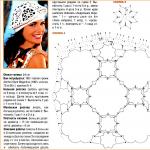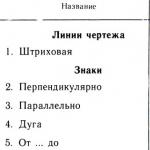My child is sick, what should I do? A child starts to get sick: what to do, which doctor to see? Easy relief of the disease, plenty of drinking, mandatory medical appointment and treatment
Signs to look out for:
- The child loses weight (especially in infants);
- The child has a pale appearance, circles under the eyes, a dull look, a white coating on the tongue;
- The child is lethargic, half asleep, does not want to play;
- Either the baby is excited, nervous, capricious for no reason;
- Poor appetite.
Listen to the opinions of other family members, otherwise it is very difficult to judge the health of your child precisely because he is always in front of your eyes.
“Look, our baby doesn’t look good today” or “Your son can’t find a place for himself today”... - you can hear from loved ones. Do not consider these words a final diagnosis, but let them alert you.
If the child already has symptoms of the disease (fever, runny nose, cough, rash, etc.), but remains in good mood, and the signs remain good health- this should calm you down. But only to a certain extent.
So what to do if your child gets sick?
I propose the following action plan:
- To measure the temperature
- View throat
- Check if the rash has appeared on the chest, back, armpits and stomach.
When to call a doctor?
The most effective thing here is important rule: how smaller child, the sooner it needs to be shown to a doctor.
Don't forget to tell the doctor not only about the symptoms you found, but also whether your child has been in contact with sick people. Also mention what chronic diseases the child has.
What to do while waiting for the doctor?
As soon as you discover symptoms of the disease in your child, you must definitely put the baby to bed and isolate him from other children. Until the doctor has examined the child, you cannot be sure that the disease is not dangerous to others.
A sick child needs rest. Eliminate, if possible, all unnecessary noise: TV, music, loud games of other children.
Do not give your child any medicine unless prescribed by a doctor. At best, this will not bring any benefit, at worst, it can not only harm the child, but also hide the main symptoms from the doctor.
But you can always give your child something to drink, especially when he has a fever.
How to restore your child's health?
Perhaps all parents wish their children good health. Frequently ill children are simply a disaster for every family. There are many reasons why parents do not want to take sick leave. But the point is not to find out what consequences we can have in this regard. The task of parents is to break out of the vicious circle of endless sick leave.
My eldest daughter was sick a lot. Her first three years of life were almost half spent on sick leave, and it seemed that there would be no end to it. But hopeless situations can not be. You can always find a solution that will help, if not eliminate, then improve the problem. And I found such a solution - I changed and eliminated what was preventing my daughter from being healthy and enduring illnesses more easily.
These steps turned out to be so simple that now it’s even strange to understand how unobvious they were for me in those years. The simplest logic in any business is that, wanting to see a different result, we continue to do the same actions with enviable consistency. Therefore, the first and most important thing that we must accept for ourselves is the fact that if we want to change the result (i.e. we want the child to stop constantly getting sick), we must change the algorithm of actions and conditions that lead us to this result.
In general, I won’t bore you for too long. A conversation about children's health is difficult to fit into one post. So I wrote a small book, a kind of mini-course, where I outline my personal experience raising children healthy.
Colds often occur not only against the background of hypothermia, but also under the influence of various viruses on the body. Therefore, the likelihood of a child getting sick increases when he is in the same room with a carrier of the infection, and if there is one sick child in the class, all his classmates are in the zone of the so-called increased risk of contracting colds. Viruses are easily spread by airborne droplets, and therefore diseases of children in kindergarten or school age- a phenomenon that all parents face sooner or later.
What to do if your child has a cold?
When a child gets sick, it is very important to understand that there are currently no effective treatments for colds antiviral drugs. What remains is to relieve symptoms if necessary, and it is also possible to use various interferons, which are prescribed exclusively according to doctors’ indications in extremely serious situations.
Among the ways to alleviate the child’s condition it is worth highlighting:
Enough a large number of warm drinks, eliminating water loss due to sweating, fever or phlegm;
drugs to reduce fever, which must be used when body temperature rises above 38.5;
vasoconstrictor drops for a runny nose, which allows you to clear the child’s airways for normal breathing;
a number of antiseptics and antibiotics that help restore mucous membranes in the body and fight various infections;
inhalation through a nebulizer or classic steam inhalation to affect the respiratory tract with hot steam containing medications.
It is very important to call a pediatrician at home or visit a clinic in a timely manner so that the specialist examines the child, makes a diagnosis and recommends appropriate treatment, selecting for each individual situation necessary medications.
IMPORTANT! By calling a doctor to your home, you can save your child from an unnecessary walk and physical activity, as well as from unnecessary and undesirable contacts for a person with weakened immunity during illness with other sick children in line at the hospital.
It is the pediatrician who will tell you how to treat a child at home, or who will advise admitting a sick patient to a hospital, if there is such a need.
Preventive measures
Some of the measures to prevent childhood colds include:
Ventilation of premises;
careful personal hygiene, special attention is paid to hand washing;
you should not change the climate and environment dramatically without the need;
avoid overheating and hypothermia;
hardening, healthy sleep and swimming in open water to improve immunity.
Some parents give their children interferons for prevention. different types when the cold season sets in, but this is a completely wrong technique. Such drugs should be taken only on the recommendations of a doctor, and self-treatment or taking medications leads to a deterioration in a person’s condition.
After treatment
You should not immediately go for a walk if you have only managed to alleviate the symptoms of the disease a little. Certainly, Fresh air is extremely important for the child, but if it is cold and wet outside, then there is a high risk of worsening the severity of the disease, and then antibiotics or interferons can no longer be avoided.
Hardening as a preventive measure is not only possible, but also necessary. However, again, it should be remembered that enough time must pass for a long time after the patient’s last illness, so that his body adapts, recovers and does not react negatively to the procedures!
"SM-Doctor" - high-quality treatment without children's tears
One of the most important aspects of parental care is the health of the child. Choosing a clinic where the baby will be observed from the first days of life until the age of 18 is a serious step that many take even before the birth of a little person. Many Muscovites prefer to bring their children to one of the clinics of the SM-Doctor network, which attracts with the high professionalism of the medical and nursing staff, a friendly atmosphere and affordable prices for all types of treatment.
We are accustomed to the fact that with the appearance of a baby, silence disappears in the house. Therefore, when a child stops being naughty, running around the apartment at breakneck speed and crying, complaining of a pain in the stomach or throat, it becomes clear that a disease has entered the house. And she hit the most valuable member of the family.
Where to begin
When the first symptoms appear, you should immediately call a doctor at home. Yes, our doctors are not always friendly and sometimes, looking at a smiling baby, who with their arrival can only “boast” of a runny nose, they show their dissatisfaction by criticizing the young mother. But you must admit, it is better to listen to moral teachings than to regret that your child was not provided with qualified assistance on time.
Body temperature is the main indicator of a baby's health. But there is no need to worry too much if it is slightly above the classic healthy level - 36.6. Overly warm clothes and active games fidgeting can lead to a slight increase in body temperature, so it is important not to overlook other symptoms.
It is important that there is an accurate thermometer in the house. If possible, get devices that measure temperature remotely within a few seconds. They are very convenient to use, because most often it is difficult for children to sit still. But such devices, as a rule, have a serious error, so it is better to have an ordinary mercury thermometer on hand, just in case.
Let's start to act
An increase in body temperature is a manifestation of the body's protective reactions to a viral infection. Doctors say that it is not necessary to bring down a child’s body temperature, which does not exceed thirty-eight degrees.
But, like any other rule, there are exceptions to this.
It is necessary to use antipyretics when the temperature rises if the child has not yet reached two months, and also if he suffers from congenital diseases of the nervous or cardiovascular system. A dangerous symptom, which also requires the use of antipyretics, is the appearance of seizures. If you notice that the child freezes, sits up, rolls his eyes, do not panic and do not try to get him out of this state. You need to place your baby on his side to prevent him from suffocating and call him immediately. ambulance!
At elevated temperatures, the body begins to lose a large amount of moisture, so it is necessary to water the child more often. Alternate still water with sweetened tea and warm fruit drink.
When the baby's body temperature rises, most mothers have a reflex - wrap him in scarves and blankets. This is perhaps one of the most common mistakes in the fight against respiratory infection. Warm clothes and blankets have a bad effect on the body's thermoregulation, and a baby with a high temperature may overheat. It will be better if you wear baby's lungs clothes made from natural fabric.
There is no need to close the windows and turn on the heaters at full power. The air in a sick child's room should always be fresh and moist. Ventilate your apartment more often and monitor the hygrometer. But avoid drafts, as they can make the cold worse. Excessively dry air turns the mucous membranes of the throat and nose into a suitable environment for the development of infection. A cough and runny nose will go away much faster if a humidifier is running in the room; a damp towel hung on a radiator has the same effect.
We were all children and remember how our grandmothers treated us. Do not rush to put mustard plasters, compresses and cups on your baby. The effectiveness of such methods is highly questionable; sometimes they are also painful and unpleasant. And most of them are completely contraindicated for children.
A sick person, both an adult and a child, often loses his appetite during illness, so there is no need to force feed the child. Cook broth for him, it is quite nutritious and at the same time easily digestible.
Medications
There is no need to abuse medications, even if the pharmacy gave them to you without a prescription. Most quick-acting remedies relieve symptoms only for a while. They do not help fight the virus and will not protect against complications.
Remember that such drugs for the treatment of cold symptoms, such as antipyretic and vasoconstrictor nasal drops, should not be used frequently or for a long time. Expectorants are often not needed for colds. They are prescribed by a doctor for a cough that accompanies lower respiratory tract infections (bronchitis), that is, most often with a complicated course of ARVI. Homeopathic medicines for influenza can only be used in conjunction with basic antiviral therapy.
It is advisable to start taking at the first symptoms of flu and colds. medicinal product with direct antiviral effect. A remedy such as Arbidol is suitable for this. Arbidol is produced in tablets. It can be given to children starting from three years old. The optimal period to start antiviral therapy is the first two days from the onset of the disease.
The effect of this drug is manifested in reducing the severity and overall duration of the disease, as well as the risk of developing secondary bacterial complications, which are the main danger with influenza and colds.
Alarming symptoms
If, in addition to general weakness, poor health, runny nose and cough, diarrhea, rash or vomiting are added, then such symptoms may indicate a serious infectious disease: rubella, chickenpox, measles, scarlet fever.
It is necessary to call a doctor or an ambulance and, while the doctors are on the way, if there is vomiting and diarrhea, give the child something to drink, because at this moment the body suffers significant fluid loss. Give your baby a teaspoon of water every ten minutes. Do not give a laxative under any circumstances, do not give the patient an enema, or apply heating pads or compresses to the stomach. And most importantly, if you are not sure about any method of treatment, do not experiment on a child under any circumstances.
Children of all genders and ages suffer from colds. During the cold season, especially in windy and humid weather, signs of illness in children appear repeatedly. In order not to “heal” the child with various tablets, syrups and other chemicals pharmaceutical products, it is better to use natural methods of healing the child’s body.
To safely maintain your baby’s immunity you will need:
- natural vitamin drinks;
- dry or fresh herbs (sage, eucalyptus, rosemary, sea salt for inhalation);
- mustard plasters or compress kit;
- fresh water, Apple vinegar or lemon juice for wiping at high temperatures.
Instructions
1. If a child is sick, for his speedy recovery it is necessary to focus on caring for and increasing immunity. Of course, symptomatic treatment is necessary: reduce high fever, eliminate runny nose, cough and sore throat.
2. When a child’s cold is accompanied by a temperature above 38°C, it is recommended to use antipyretic pharmaceutical or natural remedies. For example: you can wipe the child’s body with warm water acidified with vinegar, then cover with a sheet and after a couple of minutes with a blanket. To obtain the desired effect, the procedure can be repeated every half hour until the fever decreases. Instead of vinegar, you can use lemon juice, on average 1 tsp. for 200 ml of water.
3. Pediatricians who treat colds in children always advise the patient to drink little and often. This is necessary to remove toxins produced during illness. Warm drinks are also helpful for coughs and sore throats. You only need to prepare tasty drinks that your baby will drink with pleasure. For example: freshly prepared carrot-apple juice, cranberry-honey juice, tea with lemon, orange, raspberry, honey. For a wet cough, milk with honey helps well, for a dry cough - milk with mineral water.
4. If a child’s nasal congestion is not accompanied by a fever, then bags of heated salt or warm, hard-boiled chicken eggs can be placed on the sides of the nose. Such compresses help prevent purulent runny nose. If your nose is constantly running, take carrot juice. For acute respiratory viral infections, treatment may include inhaling onion vapors; to do this, place chopped onions next to the sick person’s pillow.
5. When coughing, if there is no cough elevated temperature, mustard plasters or warm compresses on the area are indicated chest. To prevent this procedure from causing discomfort for a baby, mustard plasters do not need to be moistened with water. Apply them dry, so they will heat longer.
6. Inhalations are very useful. Pour sea salt into a hot frying pan and add sage, eucalyptus or rosemary. After you feel the aroma of the plant, place the frying pan near the baby’s bed (preferably a little lower). The smell will quickly rise up and penetrate the nasopharynx, bronchi and lungs of the child. You can repeat this procedure 3 times a day. This affordable remedy is great for coughs.
7. Ventilate the children's room several times a day. This way, pathogenic microbes will leave the room, and fresh air will have a beneficial effect on the body. If it's cold outside, take the baby out of the room when airing. In summer you can keep the window open all the time.
The outcome of the disease greatly depends on proper care. A child after an illness, and even more so during it, needs constant psychological encouragement. You can tell your baby fairy tales, sing songs, and talk constantly. Positive emotions can significantly increase the protective functions of the immune system.
Adults often self-medicate, feeling like a real pro. But it’s one thing when you have to treat yourself, it’s another when a child gets sick, and you simply have no right to make a mistake. What to do if a child gets sick?
Treatment at home
You can try to cure a cough, cold, runny nose or sore throat at home, but under the close supervision of a pediatrician. The main thing to remember is that sick babies need to be dressed warmly (but not overheated) and given plenty of water. If the child heat, you should call a doctor. Before the doctor arrives, the baby should be wiped with a damp sponge from time to time.
Illness is a sign of trouble
A small child does not yet know how to determine where it hurts. A cry is the first sign that something is wrong with the baby. The newborn screams because he feels bad; drowsiness, lethargy, and irritability are added to the signs of illness. As the child ages, he learns to localize pain. Try to take your child’s words about illness seriously and listen to him carefully. Try to figure out what is really bothering your son or daughter. At the very beginning of the disease, trust your intuition, feel your child’s pain.
According to symptoms, go to hospital
If a child breathes frequently and with visible difficulty, it is possible that he has pneumonia. This is very life-threatening and requires immediate hospitalization.
It is urgent to call an ambulance if the baby is choking, coughing for a long time, or his temperature does not subside. If vomiting begins and does not go away, weakness and lethargy persist for a long time. Symptoms that are “harmless” to the eye of an “omniscient” adult may turn out to be harbingers of serious diseases - tuberculosis, pneumonia, bronchial asthma.
You should not consider yourself a better “expertise on the disease” than a highly experienced professional physician; you should not independently change the treatment regimen or the dose of the prescribed drug. It is always necessary to remember that temporary improvement in health and complete recovery are two very different things.

How to deal with a sick baby
It is very important to control your behavior: make sure that there is no fear, panic, or uncertainty in your movements, words, and actions. Treat the disease as a reality that can be corrected. Do everything to do it as quickly as possible. Your main words at this time: “There’s nothing to worry about. It happens that children get sick, but they all definitely recover!”
It is necessary to pay special attention to the sick child. But if he suddenly feels a huge difference between the attention of adults before the illness and now, there is a real danger that the child will like to be sick.
How to entertain a sick child
A healthy child is needed for a normal mental development hug at least four times a day. At this time, the baby receives a share of confidence in your love, a part of your peace of mind. And a sick child needs the touch of loved ones doubly. Mom’s palm touches the hot forehead and the headache seems to be less, the temperature drops. Touch your patient more often.
To turn on the internal mechanisms of fighting the disease, come up with your child what his illness is like. Draw this, and then ask your child to tear this drawing apart. Let him experience the feeling that he himself is conquering his illness. When your child is on the mend, come up with different activities for him. Start sorting things family photos so that he feels useful and does not get bored.






